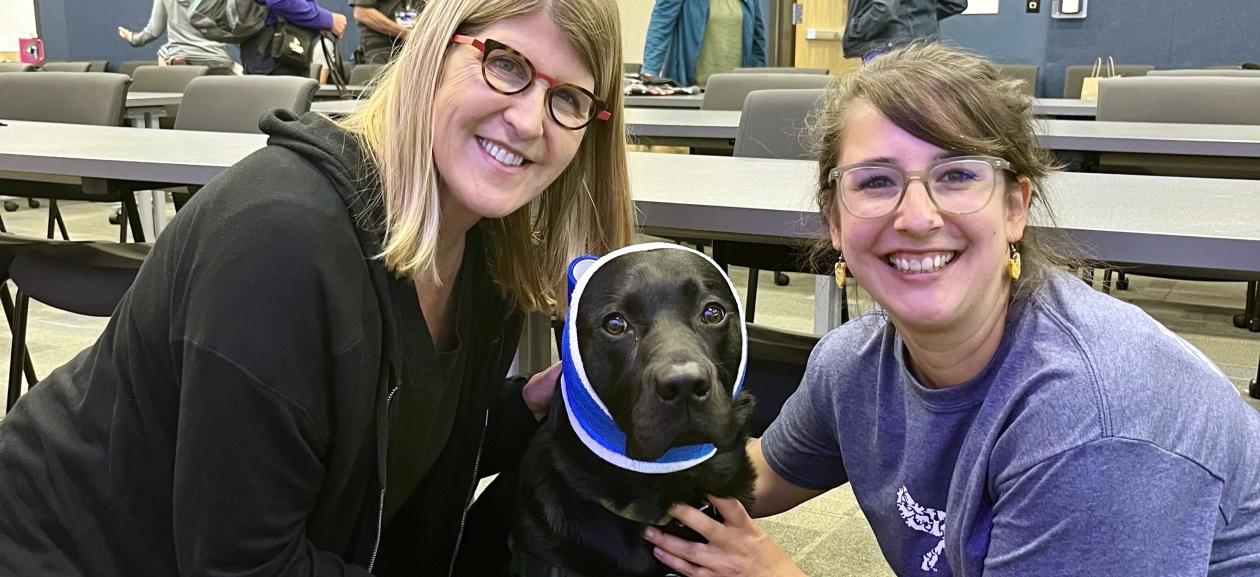
How to Build a Pet First Aid Kit
Every pet owner should have a pet first aid kit available in case of emergency. If you need help to put one together, we’ve got you covered. Below is a list of essential items your pet could need in the event of injury or trauma. Keep in mind that if you give your pet first aid care, follow your treatment up with immediate veterinary attention. Pet first aid is not a substitute for veterinary care, but it could save your pet’s life or prevent further injury until you see a veterinarian or critical care specialist.
Basic items to start with:
- My Pet's Information Card. Information about your pet, including vaccinations, medications, medical records, and a current photo.
- Phone numbers: veterinarian, nearest emergency veterinary clinic including directions, and a poison control center hotline (Animal Poison Control Center: 888-426-4435). DoveLewis Emergency Animal Hospital can be reached at 503-228-7281 and is located at 1945 NW Pettygrove St., Portland.
- Nylon leash
- Pet crate or carrier (a safe, calming place for your pet for transport)
- Nonstick bandages, towels, or strips of cloth to cover wounds and control bleeding
- Gauze rolls – for wrapping wounds or muzzling
- Sterile saline eye solution (to flush out eye contaminants and wounds)
- Gloves (non-sterile or nitrile)
- Bottled water and drinking containers
- Digital pet thermometer and lubricant to take a pet’s temperature by inserting the thermometer rectally
- Clean towels (used with direct pressure over wounds to help control bleeding)
- Socks/T-shirt for foot bandages or warmth
- Tape (duct, masking, medical)
- Water-based lubricant
- Muzzle
- Medications your animal is currently taking
Additional items that could be helpful:
- Pet first-aid book that outlines the basics of treating wounds and injuries
- Self-cling bandage (sticks to itself but not to fur)
- Anti-bacterial wipes or pads
- Betadine solution
- Triple antibiotic ointment
- Q-tips
- Hot/cold pack (to reduce swelling). Note: Never use directly on your pet. Always use a barrier like a towel.
- Eye dropper – to give oral medications or flush wounds
- Scissors (with blunt ends)
- Thermal Blanket (to help control shock)
- Paper towels and hand sanitizer (for human use)
- Penlight/Flashlight
Recent Posts
Marijuana Toxicity in Pets: What You Need to Know
As availability of marijuana increases in the Portland area since legalization, so have the number of marijuana toxicity cases treated at DoveLewis. Our doctors warn pet owners of the potential risks to their dogs and cats if marijuana is ingested in any form.
Dog Bite Prevention Tips
Now more than ever, people are venturing outside with their pets to get fresh air. This is increasing the possibility of interactions with other dogs that can lead to bites and injuries. DoveLewis is sharing tips to help prevent this from happening so animals and humans can stay safe.
How to Build a Pet First Aid Kit
Every pet owner should have a pet first aid kit handy in case of an emergency. If you need to put one together, we’ve got you covered!




